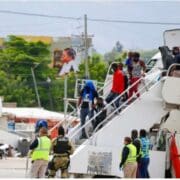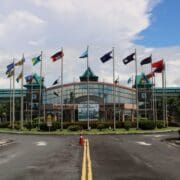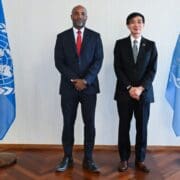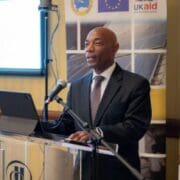PAHO urges Caribbean countries to tackle main driver of NCDs
Black Immigrant Daily News
The Pan American Health Organization (PAHO) is urging countries to tackle the main driver of non-communicable diseases (NCDs) in the Americas, including the Caribbean.
On World Obesity Day on Saturday, PAHO said front-of-package warning labels, restrictions on the marketing of processed and ultra-processed products high in fats, sugars and salt, and taxes on unhealthy food and beverages are among the measures being promoted to tackle the growing problem of obesity in the region of the Americas.
According to PAHO, obesity is one of the main risk factors for several noncommunicable diseases, including diabetes, cardiovascular disease, hypertension and stroke, as well as several types of cancer.
In 2021, PAHO said obesity was responsible for 2.8 million deaths from NCDs in the Americas.
PAHO said rates of overweight and obesity have tripled in the region over the past 50 years, adding that these conditions now affect 62.5 percent of the population, the highest regional prevalence in the world.
Levels of overweight and obesity among children is also on the rise, affecting 33.6 percent of children and adolescents aged 5-19 years in the Americas, PAHO said.
It said this is primarily due to low levels of breastfeeding, and poor diets that are low in fruits and vegetables and high in ultra-processed food and drink products.
“Noncommunicable diseases are the biggest killer in the Americas, accounting for 80 percent of all deaths in the Americas, one-third of which are preventable,” said Fabio da Silva Gomes, PAHO’s regional advisor on Nutrition and Physical Activity. “Halting the rise in obesity is essential to combat the growing burden of NCDs and improve the health and wellbeing of everyone in the Americas, including the next generation.”
To tackle the growing trend of obesity in the Americas, PAHO said it works with countries on the implementation of proven strategies to prevent and reduce the problem.
These include – protecting, promoting and supporting breastfeeding, which reduces the risk of overweight and obesity by 13 percent in children; improving nutrition and promoting physical activity in pre-schools and schools; taxes on sugary drinks and the regulation of food marketing; and intersectoral actions through health promotion, surveillance, research and evaluation.
PAHO said it is also working with countries of the Americas in the implementation of the World Health Organization (WHO) Acceleration Plan to STOP obesity, discussed during the 75th World Health Assembly in 2022.
“The aim of the plan is to accelerate progress towards reducing obesity, with a focus on high-burden countries,” PAHO said.
In December 2022, PAHO experts met with representatives from Argentina, Barbados, Brazil, Chile, Mexico, Panama, Peru, and Trinidad and Tobago in Brasilia, to start the development of country roadmaps to implement the plan in the Americas.
PAHO said World Obesity Day is celebrated every year on March 4 “to raise awareness of the urgent need to address the global obesity epidemic.”
The theme of 2023 is “Changing Perspectives: Let’s talk about obesity.”
Donate At Caribbean News Service, we do not charge for our content and we want to keep it that way. We are seeking support from individuals and organisations so we can continue our work & develop CNS further.
NewsAmericasNow.com









